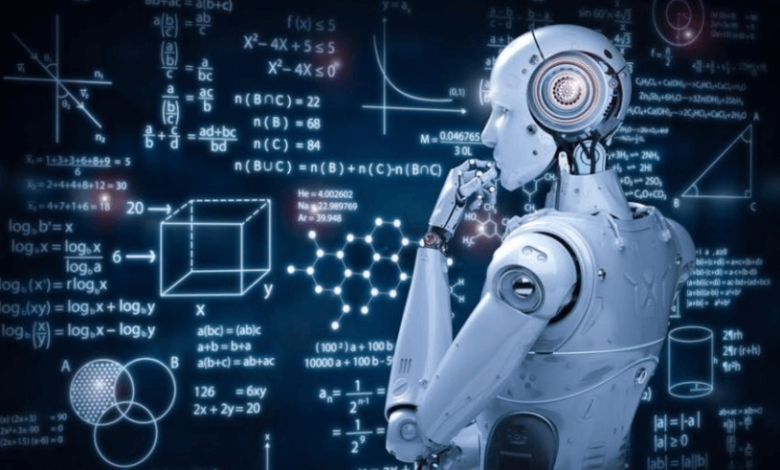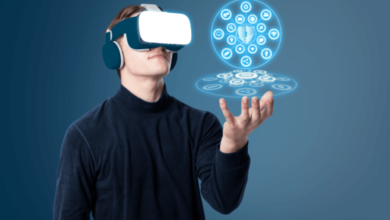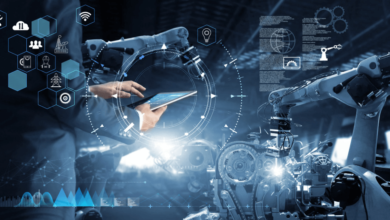Technology in 2025: The Innovations Shaping Our Future

Technology is the driving force behind modern progress. In 2025, advancements in artificial intelligence (AI), 5G, blockchain, the Internet of Things (IoT), and green technology are creating smarter systems, faster connections, and more sustainable solutions. Businesses, governments, and individuals must embrace these developments to stay competitive. This article explores the top tech trends of 2025, their benefits, and their impact on our future.
Artificial Intelligence: Smarter and Faster Solutions
Artificial Intelligence has moved from theory to everyday application. It is now a key technology shaping industries and lifestyles.
- Healthcare: AI helps detect diseases early, design new drugs, and assist in robotic surgeries.
- Business operations: Companies use AI for data analysis, automation, and customer support.
- Everyday use: From voice assistants to personalized recommendations, AI makes life more convenient.
Generative AI is transforming how content, design, and marketing campaigns are created. By 2030, experts predict AI could add over $15 trillion to the global economy.
Cloud Computing: The Core of Digital Business
Cloud computing has become the foundation of digital transformation. It allows organizations to store, manage, and access data securely from anywhere.
- Scalability: Businesses can quickly expand resources without costly infrastructure.
- Collaboration: Remote teams work seamlessly through cloud platforms.
- Cost efficiency: Cloud solutions reduce operational costs for startups and enterprises.
As companies adopt hybrid and multi-cloud strategies, cloud technology will remain essential for innovation and flexibility.
See also: The Future of Technology: Trends Transforming 2025 and Beyond
The Internet of Things (IoT): Smarter Connectivity
The Internet of Things (IoT) connects billions of devices, enabling communication and automation in real time.
- Smart homes: Appliances, cameras, and thermostats improve comfort and save energy.
- Healthcare wearables: Devices track heart rates, sleep patterns, and fitness goals.
- Industry: IoT sensors predict equipment failures and reduce downtime.
Future smart cities will use IoT to manage traffic, reduce waste, and optimize energy use, making urban living more efficient.
Cybersecurity: Protecting Data in a Digital World
As technology grows, so does the risk of cyberattacks. Cybersecurity is one of the fastest-growing fields in tech.
- Threats: Hackers use phishing, ransomware, and identity theft to target businesses and individuals.
- Solutions: Companies are adopting AI-driven defense systems and biometric authentication.
- Consumer safety: Users must take responsibility by using strong passwords and secure networks.
Cybersecurity will continue to be critical in building trust and safety in digital systems.
5G Networks: Powering the Next Generation of Connectivity
The rollout of 5G technology is transforming global communication and digital services.
- Ultra-fast internet: Enables smooth streaming, online gaming, and video calls.
- Smart infrastructure: Supports connected cars, smart traffic systems, and remote healthcare.
- Low latency: Essential for virtual reality (VR), augmented reality (AR), and metaverse experiences.
5G will fuel the next wave of digital innovation, connecting people and devices with unprecedented speed.
Blockchain: Trust and Transparency in the Digital Era
Blockchain is more than just cryptocurrency—it’s a revolution in digital security and transparency.
- Finance: Blockchain supports decentralized finance (DeFi) and cross-border payments.
- Supply chain: Companies use blockchain to track goods and ensure authenticity.
- Healthcare: Patient data can be stored securely, reducing fraud and errors.
With Web3 and NFTs gaining popularity, blockchain will continue reshaping industries and creating decentralized ecosystems.
Green Technology: Innovation for a Sustainable Future
As environmental concerns rise, green technology is at the forefront of innovation.
- Renewable energy: Solar, wind, and hydropower are becoming mainstream.
- Electric vehicles (EVs): Tesla, BYD, and others are revolutionizing clean transport.
- Smart grids: Digital energy systems reduce waste and improve efficiency.
Green technology ensures that progress does not come at the cost of the planet. In 2025, sustainability is not an option—it is a necessity.
Emerging Tech to Watch
Several futuristic technologies are on the horizon:
- Quantum computing: Solving problems traditional computers cannot handle.
- Metaverse platforms: Offering immersive experiences for education, work, and entertainment.
- Biotechnology: Advancements in gene editing and personalized medicine.
- Artificial General Intelligence (AGI): AI that may eventually match human intelligence.
These breakthroughs will open new opportunities while raising ethical and social questions.
Conclusion
Technology in 2025 is shaping a smarter, faster, and greener world. From AI and IoT to 5G and blockchain, innovation is transforming industries and everyday life. At the same time, challenges such as cybersecurity and sustainability remind us that responsible tech adoption is essential.
The future belongs to those who adapt and embrace innovation wisely. By investing in technology while prioritizing security and sustainability, society can create a future where digital progress benefits everyone.




